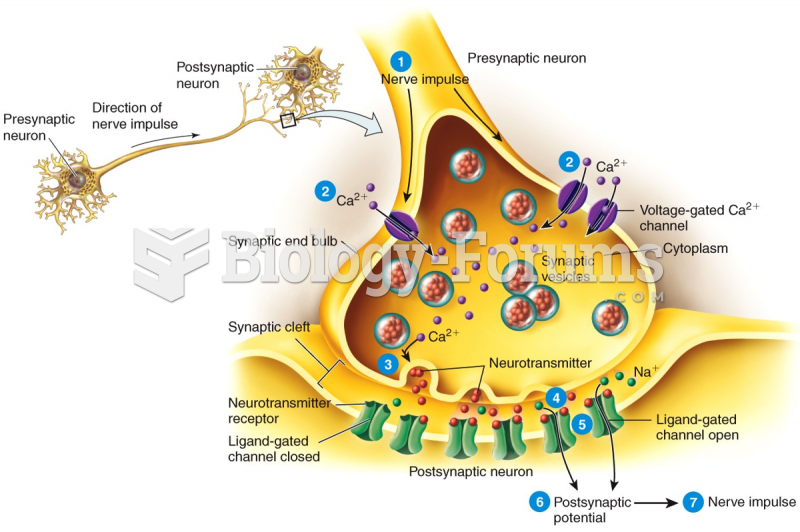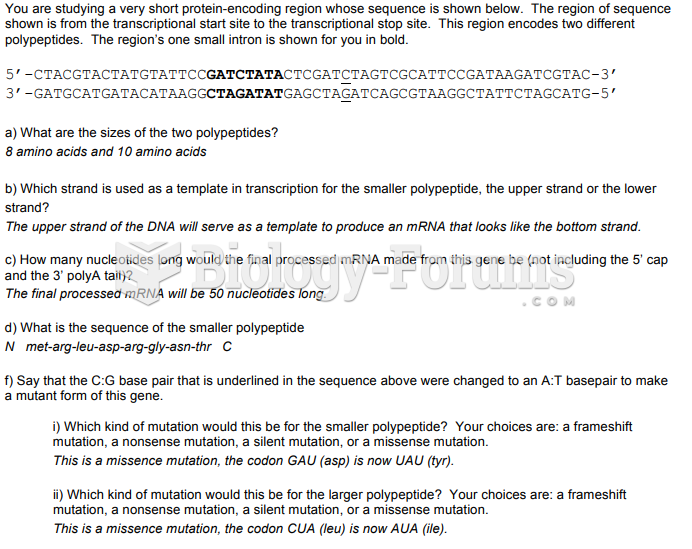|
|
|
There used to be a metric calendar, as well as metric clocks. The metric calendar, or "French Republican Calendar" divided the year into 12 months, but each month was divided into three 10-day weeks. Each day had 10 decimal hours. Each hour had 100 decimal minutes. Due to lack of popularity, the metric clocks and calendars were ended in 1795, three years after they had been first marketed.
Studies show that systolic blood pressure can be significantly lowered by taking statins. In fact, the higher the patient's baseline blood pressure, the greater the effect of statins on his or her blood pressure.
More than 30% of American adults, and about 12% of children utilize health care approaches that were developed outside of conventional medicine.
Drying your hands with a paper towel will reduce the bacterial count on your hands by 45–60%.
More than nineteen million Americans carry the factor V gene that causes blood clots, pulmonary embolism, and heart disease.







